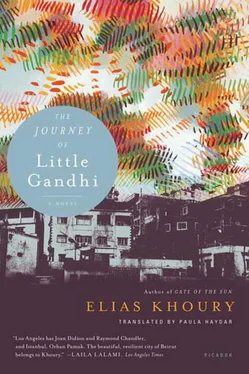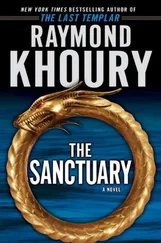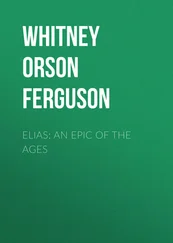When Gandhi entered the kitchen, he was shocked by the amount of food. The cook, who was wearing a white shirt and a long white cap on his head, led him through the inner rooms of the kitchen and pointed to the plates. Gandhi would empty everything from his bag. He’d fill the bag, and there would still be a lot of food left that was to be thrown away.
He took the bag to Mr. Davis’s house, and that day he decided.
On the second day, he came with two bags — one for the dog and one for himself.
In the first bag he put the leftovers, and in the second one, which was stuffed with empty sardine tins he’d picked up the night before and had his wife wash out, he tried to sort out the food and place it in the little tin cans. Then he put them carefully into the bag.
On the third day, he brought, in addition to the two bags and the empty sardine tins, an empty bottle and tried to fill it with oil left in the plates of labneh.
On the fourth day, Fawziyya came with him, and she did the sorting and organizing of the food before it was placed into the tin cans.
On the fifth day, the routine was regulated, and he agreed with the kitchen manager to pay him six liras a day, after he’d refused Gandhi’s offer to share the food.
On the sixth day, he opened a restaurant.
And on the seventh day, the day the American University cafeteria is closed, Gandhi rested in his house, and didn’t go to work. That was the first time in his life he didn’t go to work on a Sunday.
Gandhi placed some small chairs and handmade straw trays in front of his house in Nabaa and turned the stone bench into a restaurant.
“Those were the days,” Gandhi would say. “In those days there was a lot of prosperity. We all ate, we and the dog. The dog had enough, and we had enough, and everyone ate …” The Houranis started coming, Houranis, Kurds, all kinds of people, cement workers, port laborers, you name it, they’d come every day and buy. A plate of labneh, ten piasters, a plate of hummus, twenty-five, a plate of kefta, fifty, things just worked out. Muhammad al-Hariri, God rest his soul, started coming regularly. He’d come and bring a bottle of arak with him, and he’d pour some for himself and the other customers. I refused, I said no way, nothing sacrilegious in my restaurant, but how can you fight sacrilege when it’s everywhere? So I drank, I had tons of money. Those were the days, I even forgot all about shoe shining — no, I didn’t forget, I stopped sitting there all day, breaking my back behind the shoe-shine box. I worked a little on the side, for special customers. I’d take the box and sit beneath Madame Lillian Sabbagha’s staircase, and enjoy seeing the beautiful Russian woman in the morning. I’d shine her shoes, the Reverend Amin’s, Davis’s, the Assyrian’s, al-Munla’s, and very few others. The real work, however, was in the restaurant.”
Then came the catastrophe.
The dog died.
Gandhi was prepared for anyone’s death, but not the dog’s. Gandhi, like everyone, thought about death, and death, according to him, resembled his father, lying in the open coffin, teardrops stuck to his lower eyelids. He thought about his wife’s death, and other people’s deaths. Gandhi lived with death, the babies died before being born, death came before all things. Death was life. But the death of the dog never crossed his mind, and when the dog died, and Gandhi saw Mr. Davis transform into a ghost, he was beset with fear and worry. He tried to console the American, he tried to say to him what the Reverend Amin used to say when he’d visit him after all those still births that happened to Fawziyya, his wife. “The Lord giveth, and the Lord taketh away.” He tried to console him but Mr. Davis went nuts. Davis would talk about how the murderer got out and spat, and he’d say he wanted to leave the country. His blond wife, who had some white strands in her hair like pieces of cloth planted on her scalp, sat with her head down in the corner of the house, curled up like a snail, hardly moving. Gandhi would go in and out, serve coffee to the few people who’d come to offer their condolences, and Davis would refuse to be consoled.
Gandhi’s problem began two days later. He went to the cafeteria and was kicked out. The American head manager said “no more” and wouldn’t let him in. The Arab manager who was peeking out the opening in the door said to him, “No more, there’s no more food, the dog died, God rest his soul.”
Gandhi tried to negotiate with him. He offered him double the six liras he was paying him every day, and half a bottle of oil every six months. The man refused. It seemed he wanted to take the leftovers himself, or he’d contracted them to someone else. Gandhi thought about asking Mr. Davis to talk to the head manager for him. But he was afraid of his grimace, he’d look at him with disgust and think he was despicable. The dog was dead and all this man could think about was his own disgusting financial gains. He tried to bring it up with Davis, but he backed off, worried about the possibility of those looks of disgust coming from the tall American.
The idea came from Madame Lillian.
He was sitting outside the entrance to his house, shining his customers’ shoes, when he brought up the subject with her. He didn’t tell her about the restaurant in Nabaa. He told her his future was ruined and that Davis had gone crazy after the death of his dog Fox.
She suggested he get another dog. At first Gandhi refused the idea completely, it gave him an eerie feeling, like some strange plant climbing up his feet, and he felt itchy all over. After two days of careful thought, and the Reverend Amin’s advice, he changed his mind. He went to a store in Rawshi where they sold dogs, and paid a lot of money for “Little Fox.” Little Fox looked exactly like the late Fox. Same color, same look, same movements, and same tongue. Gandhi picked him up and took him to his house in Nabaa. And there Fawziyya cried. “What a disgrace,” she said, and cried.
Davis wouldn’t take the little dog, and Suad nearly died with fear when she found him next to her in bed, and Fawziyya would mop ten times a day trying to purge the house of this uncleanliness.
Gandhi picked up Little Fox and went to Davis’s house. Davis wasn’t home. His blond wife was there. When she saw the dog she started sobbing and crying. Gandhi, who was hugging the dog to his chest, tried to give him to her, but she refused to hold him. He went to hand the dog to her, but she didn’t reach out for him. The dog fell to the floor and started barking in the middle of the house. Gandhi chased after him. He’d hid himself under the couch and was yelping. Gandhi laid down flat against the floor, on the orange carpet, and got him out. He picked him up again and went outside to wait for Mr. Davis.
When Davis came and saw the dog, he said no and started speaking in English. Gandhi didn’t understand anything except the word no, and could see fear and confusion in the American professor’s eyes. Gandhi picked up the dog and went home.
When Gandhi told Alice how he killed the dog, he was trying to change the subject from Nuha Aoun’s murder, which had stirred up quite a commotion in the quarter. That day Malku the Assyrian decided to leave the country. He closed down his store for a week and told everyone he was going to sell it and go to Sweden, since the city was no longer ours. People were dying and the cats gnashed at them. Madame Aoun died, with all her hungry cats around her. There were three cats around the woman’s dead body, and when the stench pervaded the area, people were shocked by the sight of the dust-covered cats with disheveled fur that looked as though they were wild.
Before she died, Madame Aoun had made up her mind and decided to marry Constantine Mikhbat. During their last telephone conversation, Constantine was in the hospital, having some routine tests, and asked her to come. She agreed, she said she’d come and marry him and live with him. Husn had known from the beginning that Madame Aoun would leave him to get married. He knew everything. That’s what he told Rima, and Rima believed him. He said he didn’t kill the woman, and she believed him. But no one believed him. Zaylaa would wink at him whenever he saw him and say, “Way to go, hotshot.” Gandhi would avoid talking to him, and Master Ahmad became afraid of him.
Читать дальше












